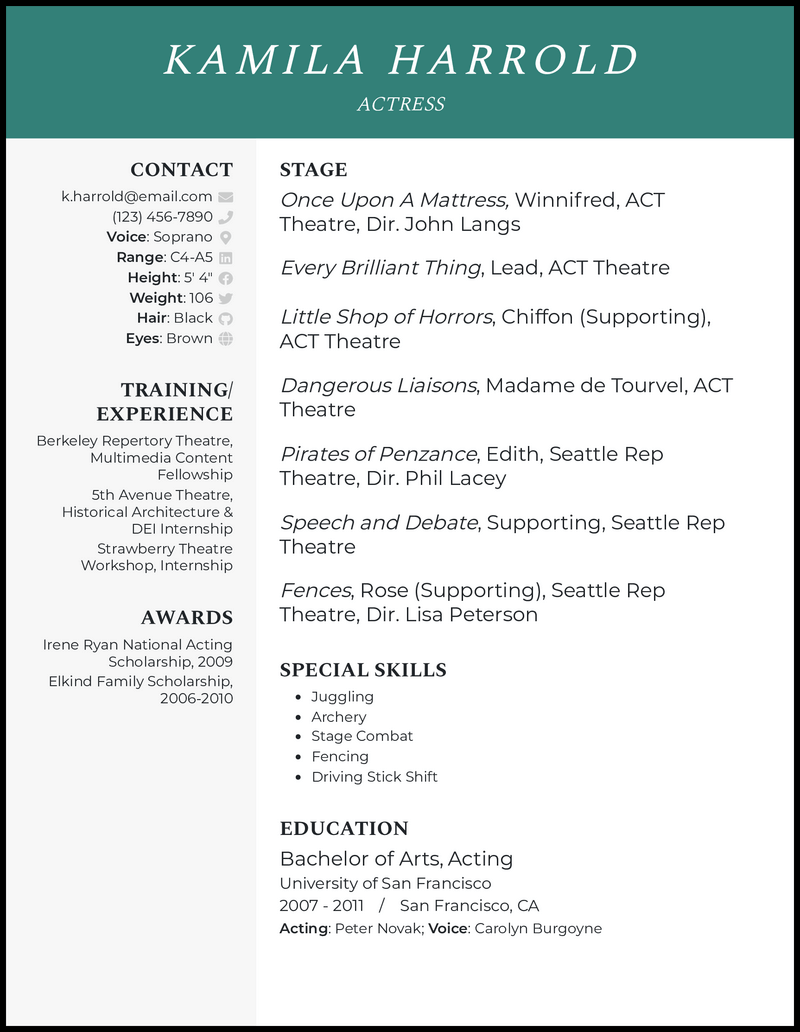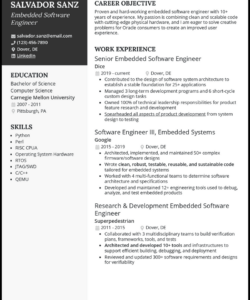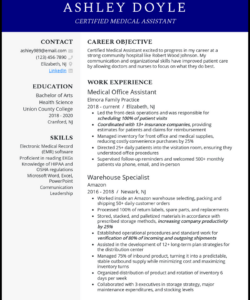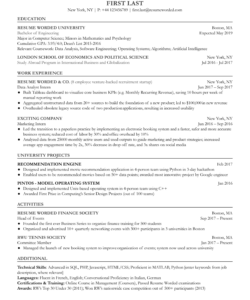Embarking on a career in musical theatre is incredibly exciting, but the very first step can often feel like a hurdle: creating your resume. When you’re just starting out, it’s easy to feel like you don’t have enough experience to fill a page, let alone impress casting directors. Many aspiring performers find themselves wondering how to put their best foot forward without a long list of Broadway credits.
But don’t worry, every single performer you admire started exactly where you are now. The trick isn’t to magically create experience, but to present the experience you do have in the most professional and impactful way possible. This guide will walk you through the essential components of a strong beginner musical theatre resume template, helping you build a document that showcases your potential and passion, even if your stage time has been limited so far.
Crafting Your First Impression: Essential Sections for a Beginner’s Resume
Your resume is often the very first impression you make, so clarity and organization are key. For a beginner, it’s about highlighting your training, potential, and enthusiasm, rather than an extensive performance history. Think of it as your artistic business card, tailored specifically to the unique demands of musical theatre. Even with limited experience, a well-structured resume can speak volumes about your professionalism and dedication to the craft.

The goal is to create a document that is easy to read, professional, and directly relevant to the roles you’re pursuing. Don’t be tempted to add fluff; instead, focus on making every piece of information count. A casting director spends mere seconds glancing at a resume, so make those seconds count by providing the most important details upfront and in an organized fashion.
Contact Information
This might seem obvious, but ensuring your contact information is clear and easily accessible is paramount. It should be at the very top of your resume, allowing casting directors to quickly get in touch with you if they want to call you in for an audition.
What to include:
- Your Professional Name (This is the name you want to be known by in the industry)
- Your Phone Number
- Your Email Address
- Your Professional Website or Online Portfolio (If you have one, include it! This can be a great place to host your reel or headshots)
Performance Experience
This section is where many beginners feel stuck, but remember, "experience" isn’t just professional credits. It includes school plays, community theatre, workshops, and even performances in talent shows or church choirs. List everything relevant you’ve done, focusing on the character you played and the production details.
How to list your experience:
- Show Title (e.g., “Into the Woods”)
- Your Role (e.g., “Baker’s Wife” or “Ensemble”)
- Company/School (e.g., “Local Community Theatre” or “High School Drama Club”)
- Director’s Name (or Musical Director if more relevant)
Training & Education
This is one of the most important sections for a beginner. It shows that you are actively working on your craft and are serious about developing your skills. Include any singing lessons, dance classes, acting workshops, relevant college courses, or degrees you have pursued.
What to include:
- Type of Training (e.g., “Vocal Training,” “Jazz Dance,” “Acting for Stage”)
- Instructor/Studio/School (e.g., “Private lessons with Jane Doe,” “ABC Dance Studio,” “University of X”)
- Duration or Year of Completion (e.g., “2020-Present,” “Summer 2021 Workshop”)
Special Skills
This section is your chance to shine a light on any unique talents that might make you stand out. Think outside the box! Can you play a musical instrument? Do you speak another language? Are you proficient in a specific dance style like tap or ballet? Can you do stage combat or juggle? These unique abilities can sometimes be the tie-breaker for a role.
Consider including:
- Musical Instruments you play (and proficiency level)
- Languages you speak (and fluency level)
- Dance styles (e.g., Ballet, Tap, Jazz, Hip Hop)
- Accents or Dialects you can perform
- Athletic skills (e.g., tumbling, stage combat, yoga)
- Unique talents (e.g., juggling, puppetry, magic)
Making Your Beginner Resume Shine: Tips for Impact
Beyond filling in the sections of a beginner musical theatre resume template, how you present that information can significantly impact its effectiveness. It’s not just about what you include, but also how you make every detail count. Even with a limited background, a thoughtfully designed and presented resume can project professionalism and enthusiasm.
Think about the visual appeal, the conciseness, and the clarity of your document. A cluttered or hard-to-read resume can quickly be overlooked, no matter how talented you are. Remember, the goal is to get your foot in the door for an audition, so every element should support that objective.
Here are some crucial tips to make your beginner musical theatre resume template stand out:
- **Keep it Concise:** For beginners, a one-page resume is almost always sufficient. Resist the urge to pad it with unnecessary information. Every line should serve a purpose.
- **Use Action Verbs:** Instead of saying “Was in charge of,” use “Directed” or “Coordinated.” Strong action verbs make your accomplishments sound more impactful and professional.
- **Proofread Meticulously:** A resume with typos or grammatical errors screams unprofessionalism. Have multiple people proofread it, as a fresh pair of eyes can catch mistakes you’ve overlooked.
- **Include a Professional Headshot:** While not strictly part of the resume document itself, a professional headshot should always be attached or stapled to your resume. Make sure it’s a clear, current, and genuinely professional photo.
- **Tailor for Each Audition:** If you know what show or role you’re auditioning for, subtly tweak your resume to highlight relevant experience or skills. For example, if it’s a dance-heavy show, emphasize your dance training.
- **Highlight Transferable Skills:** Did you learn teamwork in a sports club? Communication skills from a debate team? Leadership from a school project? These are valuable skills in theatre and can be mentioned if directly relevant to a role or if you’re trying to fill space due to limited performance credits.
Creating a strong resume when you’re just starting out might seem daunting, but it’s an essential step on your path to the stage. Your resume is a living document that will grow and evolve with your career, so focus on making your current experiences shine.
Embrace the journey, be proud of the work you’ve done so far, and confidently present yourself. With a well-crafted resume, you’re not just showcasing what you’ve done, but also the incredible potential within you to captivate an audience. Break a leg!


